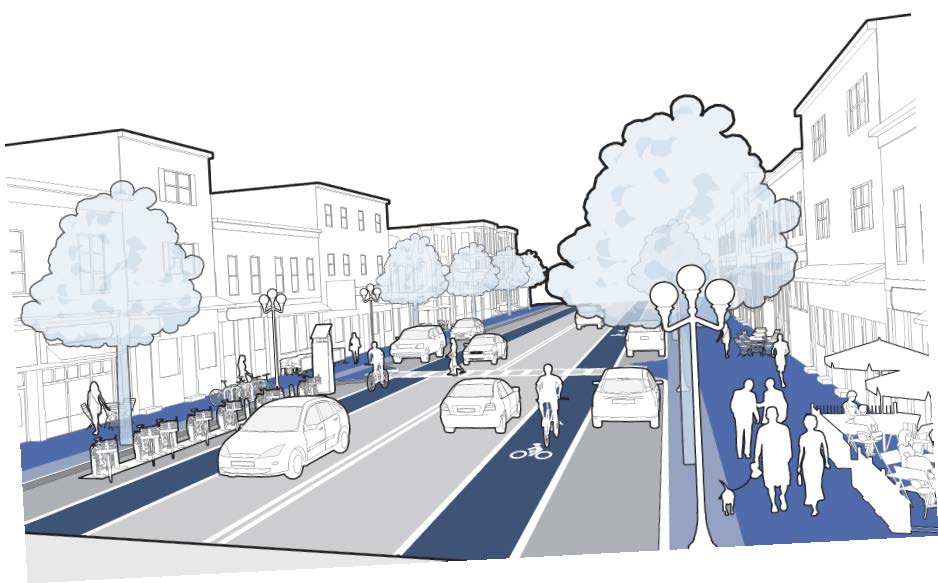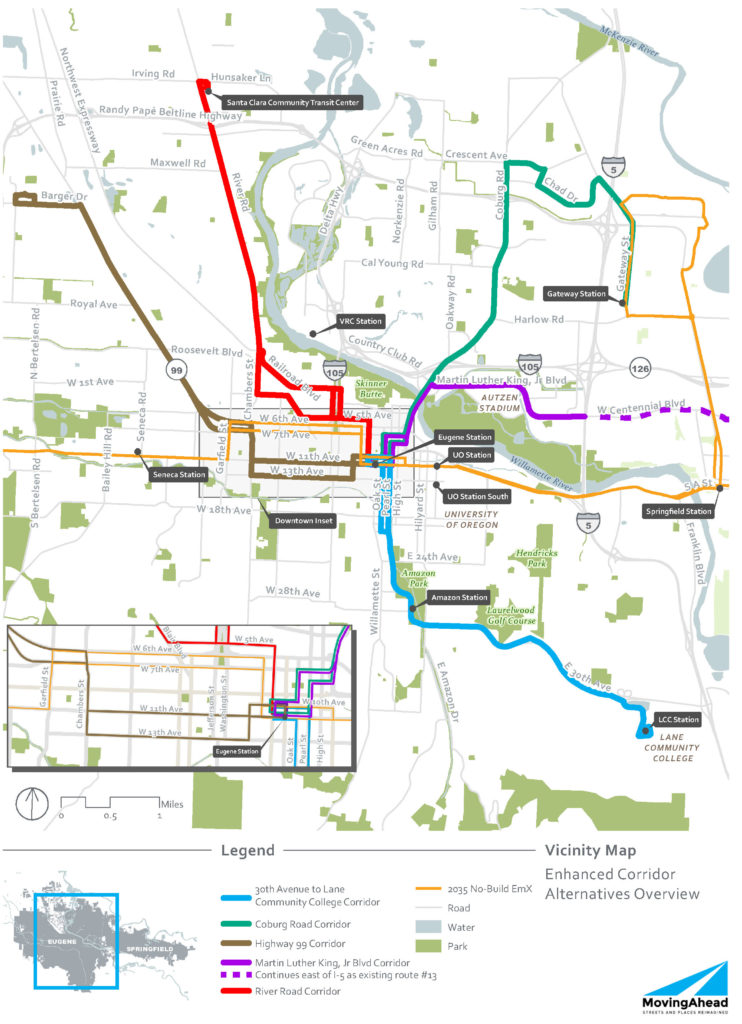Metropolitan Policy Committee approves MovingAhead; next phase is to refine designs
Today, the Metropolitan Policy Committee approved MovingAhead, ratifying what the Eugene City Council and Lane Transit District Board of Directors had already decided in March. The next phase is to refine the design along each “build” corridor (River Road, Highway 99, Martin Luther Kind, Jr. Blvd, and Coburg Road), with input from potentially affected property owners and other key stakeholders. Staff will also seek funding for construction, likely starting with River Road and Highway 99. Full buildout could take a decade or longer.

The City of Eugene has adopted plans—Envision Eugene, its Transportation System Plan, and its Vision Zero Action Plan—that call for more investment along six key corridors, for fewer vehicle trips, and for safe travel for all.
In 2015, the City of Eugene and Lane Transit District launched MovingAhead to refine plans for five major corridors.
On May 5, 2022, the Metropolitan Policy Committee (MPC) approved MovingAhead, ratifying the previous decision by the Eugene City Council and Lane Transit District Board of Directors to pursue a “build” investment along four out of five studied corridors:
- River Road: EmX
- Highway 99: Enhanced Corridor
- Martin Luther King, Jr. Boulevard: Enhanced Corridor
- Coburg Road: Enhanced Corridor — after further outreach and study
- 30th Avenue to Lane Community College: No Build — at least until other studies are completed

EmX, short for Emerald Express, is LTD’s version of bus rapid transit, including specialized green buses with doors on both sides and stations that enable level boarding.
“Enhanced corridor,” a lesser level of investment, does not include EmX buses and stations but may include some other bus rapid transit elements, for example, adding bus pullouts and giving buses a head start at traffic signals to keep buses out of traffic.
The decision represents a commitment towards “complete streets” for everyone, whether you walk, bike, ride the bus, or drive.
In addition to representatives from the City of Eugene and Lane Transit District, MPC also include representatives from the cities of Springfield and Coburg, Lane County, and the Oregon Department of Transportation. As the federally mandated “metropolitan planning organization,” MPC’s approval is needed for any transportation project receiving federal funding.
Now with MPC’s approval, staff will prepare a report to wrap up this phase of the MovingAhead project.
The next phase is to refine the design along each of the four “build” corridors, with input from potentially affected property owners and other key stakeholders. Staff will also seek funding for construction, likely starting with River Road and Highway 99. Full buildout could take a decade or longer.
See also
- With support from BEST, Eugene and LTD give green light to MovingAhead (BEST, 3/17/22)
- BEST outlines next steps for success of MovingAhead (BEST, 3/9/22)
- BEST, Eugene Chamber support MovingAhead (BEST, 2/28/22)
External links
- Metropolitan Policy Committee (Lane Council of Governments)
- MovingAhead (City of Eugene & Lane Transit District)
- Vision Zero Action Plan (City of Eugene)
- Transportation System Plan (City of Eugene)
- Envision Eugene (City of Eugene)